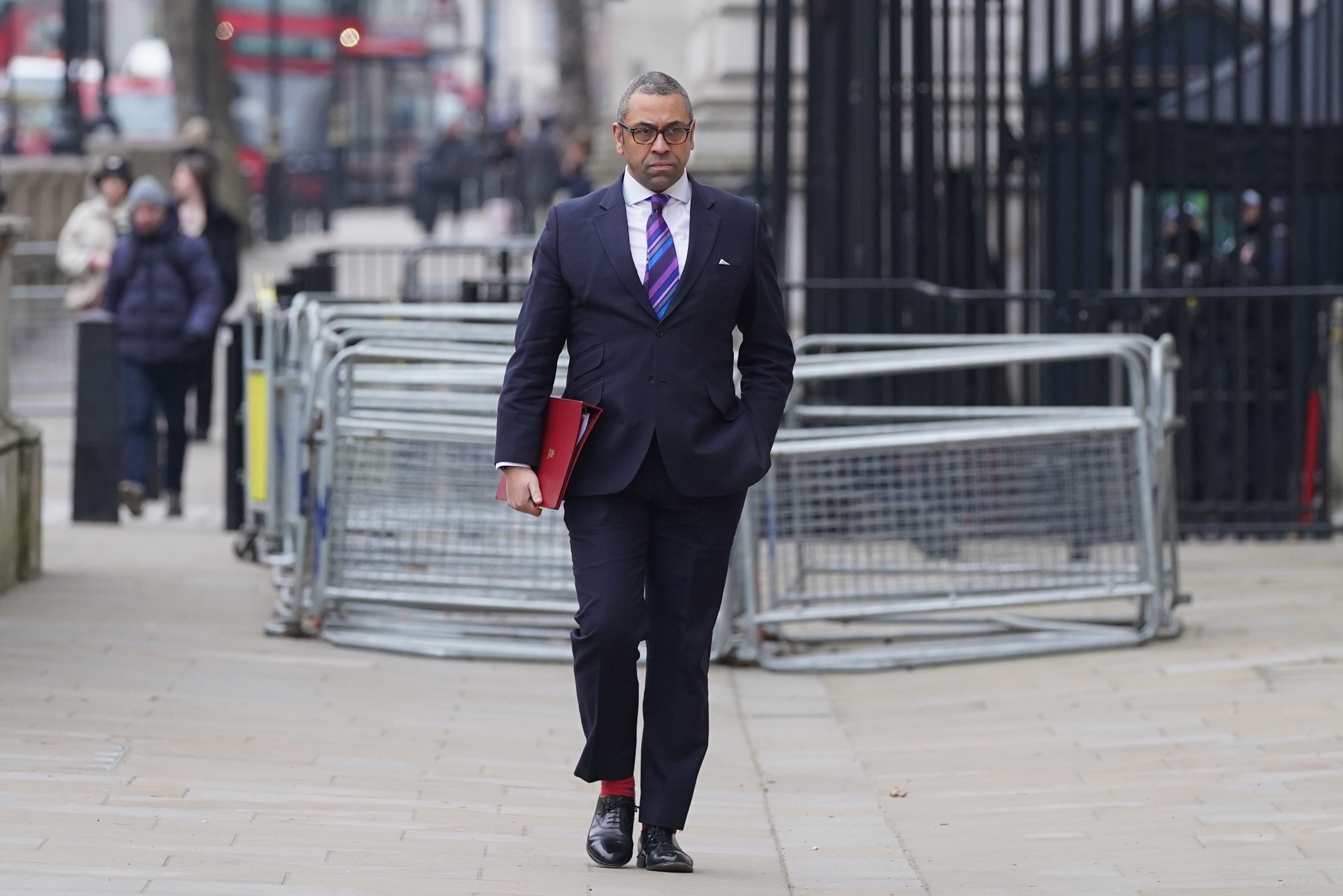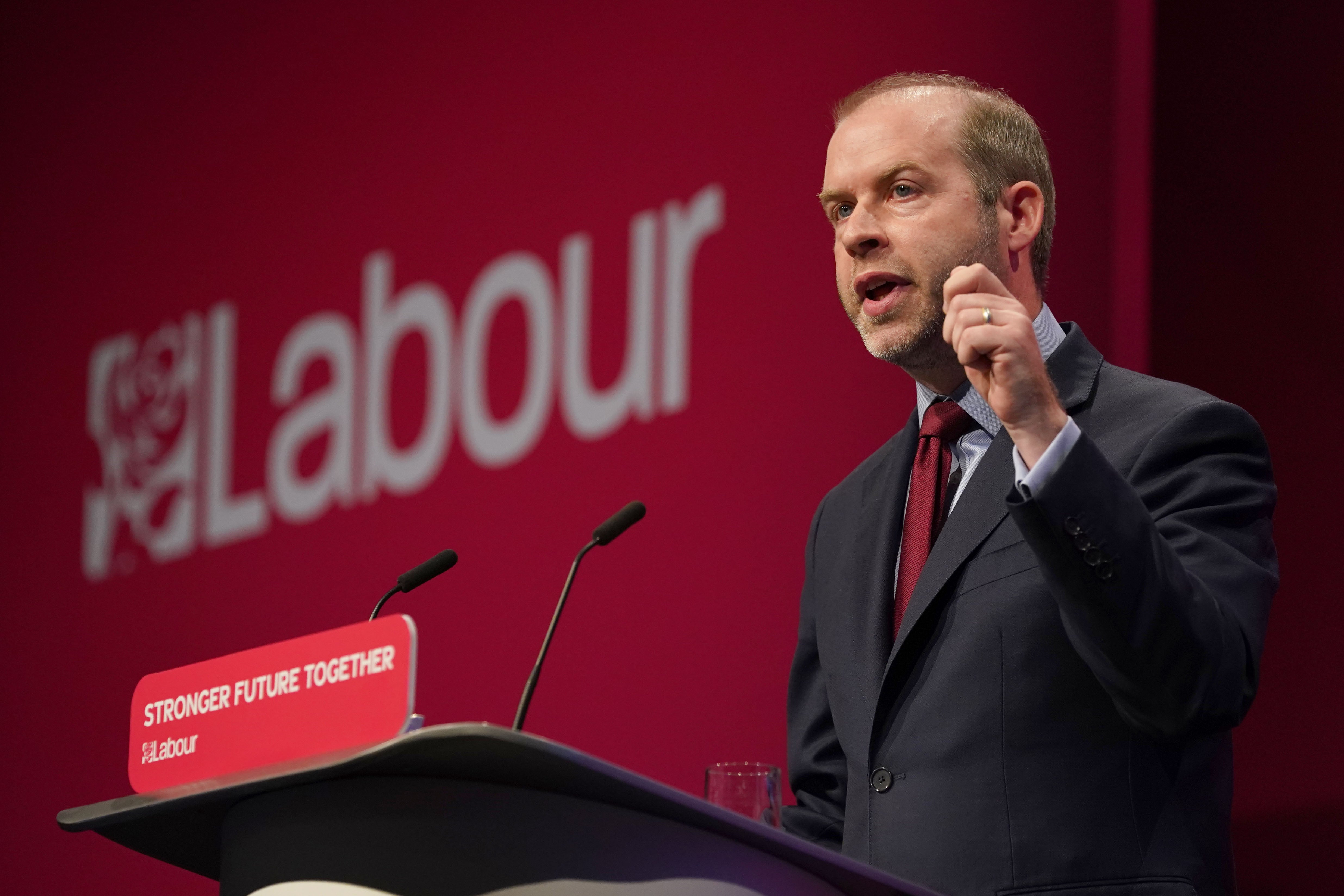
A Cabinet minister has defended the UK’s approach to sanctions levelled against Vladimir Putin’s regime as MPs prepare to fast-track the Economic Crime Bill through the Commons.
Labour said the legislation still gave Russian oligarchs a “get-out-of-London-free” card even though the grace period under the measures designed to tackle so-called “dirty money” has been cut from 18 months to six.
The opposition is calling for this to be reduced further, to just 28 days.
The ultimate goal is to make sure that the sanctions that we’ve already put in place, which are incredibly effective... are made even stronger still
The Government has tabled a series of amendments to the Bill to ensure it can act “harder and faster” against those with links to the Kremlin.
Foreign Secretary Liz Truss said the changes would “give us the chance to bring even more crippling sanctions against Putin and his regime”.
Foreign Office minister James Cleverly told Sky News on Monday that the Government was working on a cross-party basis to get the legislation through.
The Bill is set to be fast-tracked through all stages in the Commons on Monday.

“The ultimate goal is to make sure that the sanctions that we’ve already put in place, which are incredibly effective, and have had a real impact on Russian oligarchs, and indeed the Russian economy, are made even stronger still, and we welcome cross-party support in that,” Mr Cleverly said.
In response to criticism over the numbers of individual oligarchs targeted by punitive measures to date, the minister told Sky News: “We’ve had a very wide-ranging number, over 200 individuals and entities, over £250 billion worth of Russian economic activity curtailed, over three million Russian companies no longer able to raise finance on the London market.
“So, the fact that Vladimir Putin singled us out for criticism is a badge of honour.”
The Economic Crime Bill is designed, in part, to tackle the swathes of Russian money thought to be in the UK.
The money is often buried in property, with the true owners hidden behind shell companies that only exist on paper, sometimes registered in offshore tax havens.
Under new plans, when ownership of property and land is registered, lawyers will need to record who ultimately benefits from the asset. If they do not, it will be frozen and cannot be sold or rented out.
Ministers have put forward amendments to the legislation to reduce the time given for overseas entities to comply with new rules, from 18 months to six.
But Labour said this would still give oligarchs linked to Russia too long, and suggested the allowance should be cut to just 28 days.
Labour’s shadow business secretary said on Monday he wants to know where the “treasure” of Russian oligarchs has been “buried”, echoing calls for ministers to further reduce the grace period for registering foreign-owned UK property.

Jonathan Reynolds told BBC Radio 4’s Today Programme: “This is not just about oligarchs, it’s about the money launderers. It’s about tax evaders, I want to know where that money is.
“I think the reasonableness of this period is what will give us the chance to do that.”
He added: “We’ve got a look at this in Parliament in the UK in terms of the proportionality of what is involved, these activities are also happening alongside the reasonable concerns about privacy, tax evasion, money laundering, people being able to hide their assets.
“That is not just something that facilitates crime. That is something which is a threat to our national security because of what it means for the countries that are left behind because their leaders have… plundered the wealth of their countries and it cannot be something that we ignore any longer.”
It comes as the Prime Minister is expected to put pressure on international leaders to take further action to remove Russia from the Swift payment system, while pushing them to back his six-point plan to tackle Russian aggression.







